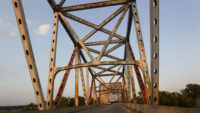A nearly $6-billion hostile takeover battle between two Canadian infrastructure giants—asset buyer Brookfield Infrastructure Partners and natural gas extractor-transporter Inter Pipeline—just got more expensive, with the Alberta government's new financial stake, observers say.
The government intervention comes as French water and waste management giant Veolia Environment SA's uninvited $13.1-billion bid to acquire its smaller but still sizable Paris-based rival Suez SA faces new obstacles from the intended target and regulators
In Canada, Brookfield Infrastructure will likely have to sweeten its $5.66 billion unsolicited bid for Inter Pipeline after the latter landed $325 million in cash grants from Alberta to support completion of its $3.2 billion Heartland Petrochemical complex, analysts say.
The new grant would replace $200 million in previous government royalty credits and provide better financial terms. It’s a substantial gain for Inter Pipeline, amounting to about 14% of overall cost of the complex that has been plagued by cost overruns and delays, according to analysts at Stifel FirstEnergy.
“We view this as a significant positive for Inter Pipeline,” the analysts wrote. “As such, we expect Brookfield may need to revisit its cash bid.”
A spokesperson for Inter Pipeline, said Brookfield’s “hostile bid” undervalues the company and does not take into account the positive long-term impact that the Heartland project will have on its bottom line. The firm “stands by” comments by its board of directors that the hostile bid “is highly opportunistic and does not reflect Inter Pipeline’s full and fair value,” said Breanne Oliver, a spokesperson.
It's unclear how much higher Brookfield will have to go, the analysts said. They estimated that the grant boosts Inter Pipeline’s value by 95 cents per share.
Undervalued?
Brookfield has offered $16.50-18.25 a share, so that would require the Toronto-based prospective buyer to potentially boost its offer to more than $19 a share. Inter Pipeline has set a baseline of at least $20 a share, according to a letter sent sent by company directors to shareholders.
In addition, Inter Pipeline’s directors said they expect a premium beyond to account for “a change of control and growth opportunities.” A central issue is how much value Heartland will deliver to Inter Pipeline’s bottom line once it opens, expected in 2022.
The project has fallen several months behind schedule and is over budget by nearly $400 million. There are also concerns about the longer-term profitability of the project, which would turn propane from Alberta into polypropylene pellets for manufacturing.
Inter Pipeline predicts a $400-million boost to its earnings from the Edmonton plant, its largest capital investment ever. That amounts to a 50% increase in profitability over 2020.
Brookfield’s bid and the debate over Inter Pipeline’s value also revolves around different views on where hard-hit Canadian and global gas and oil markets are headed.
The hostile bid "does not reflect dramatically improving energy and petrochemical industry fundamentals,” the Inter Pipeiline letter noted. The firm believes other, higher offers will emerge.
"Our business continues to perform strongly and we continue to expect that our nearly completed Heartland Petrochemical Complex, the largest growth project in our history, will deliver a step change in cash flow starting next year," said Margaret McKenzie, chair of the company special committee reviewing its options, in a press release.
Brookfield’s offer is set to expire on June 7. It said last month, in a statement, that it would not be able to increase its offer without being able to conduct “due diligence” that would presumably involve looking at Inter Pipeline’s books.
“We remain open to engaging directly with the company on fair and balanced terms,” Brookfield said in an earlier statement. It has a key advantage over potential rivals, already owning a 19.65% stake in Inter Pipeline.
Brookfield also is shopping for bargains in Canada’s battered gas and oil sectors, especially over the past year, analysts say.
“They have definitely been active at picking away at some undervalued investments,” said Patrick Kenny, an analyst at National Bank Financial. “We see the entire energy infrastructure landscape as being a very attractive value in the wake of the pandemic.”
Water Giants Deal in Limbo
Meanwhile in the French water-waste management sector battle, in a move to blunt a deal, Suez on April 6 said it would sell its Australian business to another Melbourne-based Cleanaway Waste Management Ltd., for $1.9 billion, with the final deal conditional on the outcome of the Veolia negotiations, Reuters reports.
Suez can terminate the Cleanaway deal by May 6 if the Veolia takeover happens.
According to Reuters, the agreement allows Suez time to convince shareholders that Veolia’s takeover offer is too low.
Veolia already owns almost 30% of Suez, purchased last October. Suez Chairman Philippe Varin told investors the firm was "continuing to seek a friendly, negotiated solution with Veolia,” by April 20.
But Veolia said in a statement that the Australian move will have a “negative impact” on its takeover offer, and that it will use “all legal means to prevent the sale of these strategic assets.”
The corporate moves did generate a slight rise in Suez stock value, said Reuters.
Suez also is in talks with Dutch investment firms to buy its French assets, but its anti-takeover moves generated some concern from a French financial regulator, warning it in a statement to "respect the principles of transparency and integrity of the market." Suez also questioned the regulator's tactics, said Reuters.







Post a comment to this article
Report Abusive Comment